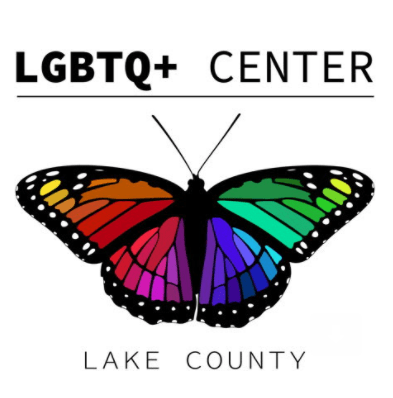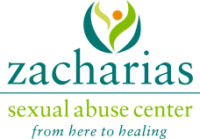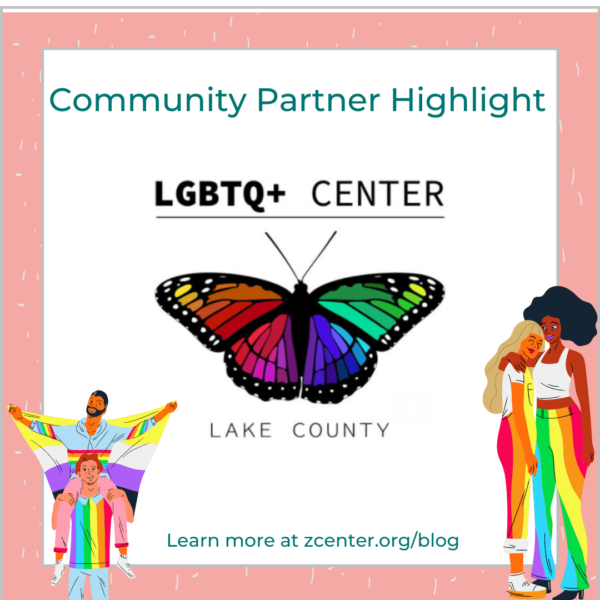 This month, we are proud to highlight the great work of one of our community partners, LGBTQ+ Center Lake County. This organization has collaborated with ZCenter on Pride events, a staff Safe Zone Training, and referrals for youth support, just to name a few of their great services. We are fortunate to have this agency in our community and we offer you here more information from a recent conversation with their Executive Director, Nikki Michele.
This month, we are proud to highlight the great work of one of our community partners, LGBTQ+ Center Lake County. This organization has collaborated with ZCenter on Pride events, a staff Safe Zone Training, and referrals for youth support, just to name a few of their great services. We are fortunate to have this agency in our community and we offer you here more information from a recent conversation with their Executive Director, Nikki Michele.
- Please share what your organization offers and how people can access your services.
Just like so many other organizations, we have had to pivot our services during the most recent Omicron wave. Currently we are running two virtual support groups (one for adults, one for youth), and a book club. We are working on setting up a parent support group (fill out a survey here). We also host two monthly social events: Queer Happy Hour on the 4th Thursday of the month, rotating venues around Lake County, and an LGBTea & Coffee on the first Wednesday morning of the month. We are also busy providing SafeZone trainings to a wide array of organizations around Lake County. We are looking forward to our second annual Lake County PrideFest, June 4th, in Waukegan. We also have a Discord server to serve as a virtual “drop in space.”
- Can you tell us about where you are located?
As a nonprofit that was established during COVID, we’ve had to delay getting a brick and mortar space. However, we have been strategizing an ideal location, and are currently considering one of the more eastern Lake County townships. They tend to be home to more marginalized communities (People of Color, low income, homeless) who have less access to services and transportation. Having a community center in eastern Lake County would make it easier to reach this vulnerable demographic.
- During Black History Month, we often share statistics on how People of Color are more vulnerable to sexual assault (RAINN.org). Could you share how you reach out to People of Color who are also LGBTQ+? Also, how would you describe the unique experiences that you see for LGBTQ+ People of Color?
The LGBTQ+ Pride movement owes its very inception to Black trans women. QTBIPOC individuals have always been on the frontlines of the charge for equality. From Bayard Rustin in the Civil Rights movement, to activists like Marsha P. Johnson, Miss Major Griffin-Gracy, and Stormé DeLarverie at the 1969 Stonewall riots, to the Black Lives Matter movement founders Patrisse Cullors, Opal Tometi and Alicia Garza, QTBIPOC people throughout history have driven enormous advancements in media, the arts, sports, activism, advocacy and politics, which have enhanced the lives of people everywhere. Despite these amazing triumphs, QTBIPOC consistently experience widespread discrimination and violence in every realm of society. AntiBlackness and anti-LGBTQ attitudes have created systems of oppression with real consequences: Black LGBTQ people face some of the highest risks of violence, workplace discrimination, homelessness, HIV and AIDS, and healthcare disparities and mistreatment in America. Moreover, women of color, who must also contend with sexism prevalent in our society, are even further impacted by these issues. In short, being a Black trans woman in America means you’re far more likely than most other people to experience serious roadblocks and harms, in the form of everything from extreme poverty to violent murder.
- For any readers who want to know more about how to be an ally for LGBTQ+ folks (and for People of Color), what do you recommend? Are there resources you can share?
I truly believe one of the most impactful things we can do is also one of the simplest: listen to marginalized people’s experiences. In the wake of George Floyd’s brutal street execution, I was personally challenged to follow Black social media content creators, keep my mouth shut and LISTEN. This simple act has begun rewiring my perceptions of the Black experience. Because we live in an inherently bigoted society that actively promotes cisgender heterosexual white men at the expense of all other groups, we have been imbibing societal discrimination and bias daily along with our tap water. We must intentionally push back against our hardwired mindsets. As we listen to others’ experiences, we gain valuable insight into their very humanity, which deepens our ability to empathize and, in turn, transforms us into effective advocates. So, my challenge to anyone seeking to do better is to seek out QTBIPOC content and amplify their invaluable contributions.
- Is there anything else you would like our readers to know about your work for social justice and your services for the community?
I am very proud to be partnering with Mayor Taylor (Waukegan) to perform the audit with the Human Rights Campaign that will assign a score to Waukegan for its LGBTQ+ inclusivity and safety. Part of this effort has included making major changes within the Waukegan Police Department to address the decades-long bias and discrimination (of LGBTQ+ folks, and Black and Brown lives) that was all too prevalent. I’m thrilled to see the Lake County seat take a lead in this way, and hope it will put additional pressure on surrounding townships to follow suit.
To learn more about LGBTQ+ Center Lake County, please visit their website: https://lgbtqcenterlakecounty.com/
Notes on acronyms and abbreviations used:
- LGBTQ+: Lesbian, Gay, Bisexual, Transgender/Transsexual/Two-Spirit, Queer/Questioning, and Others. Also commonly used is LGBTQIA: Lesbian, Gay, Bisexual, Transgender/Transsexual/Two-Spirit, Queer/Questioning, Intersex, and Asexual. Learn more at Seattle Pride.
- BIPOC: Black, Indigenous, People of Color. Learn more at VOX.
- QTBIPOC: Queer, Transgender, Black, Indigenous, People of Color. Learn more from UCLA and USC.
Written by Kristin Jones, PhD, EdM, Outreach Supervisor.
ZCenter aims to end sexual violence, mobilize and educate the public, and support survivors of sexual assault. Our blog addresses issues related to ending oppression and violence, since all oppression and violence are intersectional with sexual violence. All ZCenter blog posts are written by state certified staff, interns, and volunteers. For questions on authorship or content, please email info@zcenter.org.

